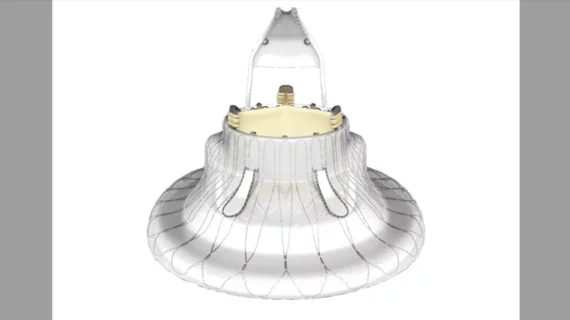Cardiologists make history, perform TTVR with new-look valve for first time in U.S.
A team of cardiologists from Henry Ford Hospital in Detroit are the first physicians in the United States to perform a transcatheter tricuspid valve replacement (TTVR) on a patient with tricuspid valve disease using the second-generation LuX-Valve Plus system designed by Jenscare.
Interventional cardiologists Pedro Villablanca, MD, and Brian O’Neill, MD, performed the successful TTVR procedure on an 80-year-old patient who presented with severe tricuspid regurgitation (TR). Open heart surgery, the more common treatment for severe TR, was not an option for this patient, leading the team to seek out a minimally invasive alternative.
“These are patients with severe tricuspid regurgitation who have no other options available to them in the U.S., based on the anatomy of their native valve and medical complexities,” Villablanca said in a prepared statement.
“Patients come to Henry Ford Health’s Center for Structural Heart Disease with complex heart conditions, and we do whatever we can to help them find a solution,” added O’Neill.
The patient is “currently thriving” after the successful procedure, according to the hospital.
What happened during the TTVR procedure?
Villablanca and O’Neill helped develop the technique for implanting the LuX-Valve Plus TTVR system. This new technique involves implanting the new valve via a catheter that is placed in a small incision in the patient’s neck. The damaged valve is not removed. Instead, the interventional cardiologists rely on 3D and 4D medical imaging to guide placement of the new valve inside the existing valve.
“It is incredible to see the new valve functioning immediately upon positioning in the heart, the right side of the heart’s function started improving withing minutes of successful implant,” Dee Dee Wang, MD, an imaging cardiologist with Henry Ford Health, said in the same statement.
When do patients need this procedure?
Symptoms commonly linked to severe TR include fatigue, welling in the legs, abdominal bloating and feeling short of breath. Patients with pacemakers or a history of heart failure may face a heightened risk of experiencing a leaky tricuspid valve. Age, the cardiologists noted, can also play a key role.
“This is a condition that commonly occurs with aging,” Villablanca said. “As people age, the valve naturally deteriorates.”
Transcatheter tricuspid regurgitation may become a standard of care
The surgical risk is much higher in tricuspid valve patients and while surgery can be used to replace or repair the valve, outcomes are not always positive, For this reason only a few hundred of these procedures are performed in the U.S. each year. Several minimally invasive transcatheter devices for repair and replacement of the valve are now in trials. Experts in the structural heart field said a few of these are likely see FDA clearance in the next couple years, which will open up a whole new option for these patients.

